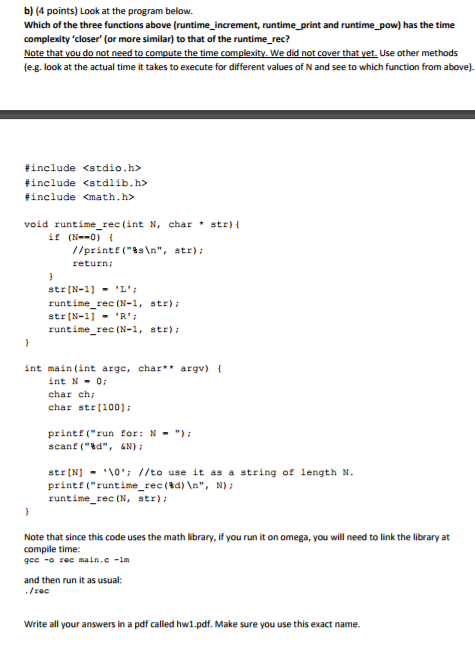Answered step by step
Verified Expert Solution
Question
1 Approved Answer
Look at the program below. Which of the three functions above (runtime_increment, runtime_print and runtime_pow) has the time complexity 'closer' (or more similar) to that

Step by Step Solution
There are 3 Steps involved in it
Step: 1

Get Instant Access to Expert-Tailored Solutions
See step-by-step solutions with expert insights and AI powered tools for academic success
Step: 2

Step: 3

Ace Your Homework with AI
Get the answers you need in no time with our AI-driven, step-by-step assistance
Get Started


